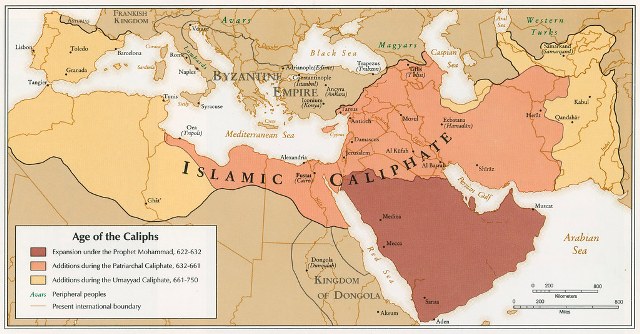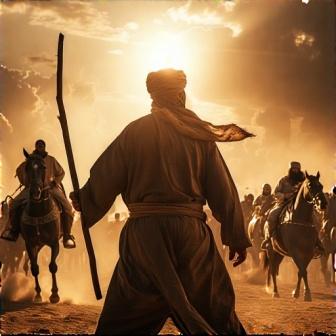When examining the sacrifices made for Islam’s establishment, few lives exemplify complete dedication more than Abu Bakr As-Siddiq (رضي الله عنه). As the Prophet Muhammad’s ﷺ closest companion and the first adult male to accept Islam, Abu Bakr (RA) faced persecution, economic hardship, and social ostracism, demonstrating unwavering faith through every trial.
Early Life and Acceptance of Islam
Before Islam, Abu Bakr (RA) held an esteemed position in Meccan society. Known for his honesty in business, genealogical knowledge, and wealth, he commanded respect among the Quraysh. His acceptance of Islam marked the beginning of profound personal sacrifices.
Immediate Response to Truth
Upon hearing the Prophet’s ﷺ message, Abu Bakr (RA) accepted Islam without hesitation. The Prophet ﷺ said: “Whenever I invited someone to Islam, they always showed some reluctance and hesitation in accepting it, except Abu Bakr. When I presented Islam to him, he accepted it without any hesitation.” (Authenticated narration)
Financial Sacrifices
Wealth Spent in Allah’s Cause
Before Islam, Abu Bakr (RA) possessed approximately 40,000 dirhams. By the time of the migration to Medina, only 5,000 remained. His wealth was spent on:
1. Freeing Slaves
- Bilal ibn Rabah (RA): Purchased and freed from severe torture
- Amir bin Fuhairah: Later became his servant and accompanied him during migration
- Um Ubais: A female slave tortured for accepting Islam
- Zunairah: Who lost her eyesight during persecution
- An-Nahdiah and her daughter
- The family of Al-Mu’ammal
The Prophet ﷺ said about this: “No one’s wealth has benefited us as much as Abu Bakr’s wealth.” Abu Bakr (RA) responded, “My wealth is nothing but for you, O Messenger of Allah.” (Authenticated by Al-Bukhari)
2. Supporting Poor Muslims
- Provided food and shelter to needy believers
- Equipped warriors for battles
- Supported orphans and widows
- Maintained regular charity despite decreasing wealth
Physical Hardships
Persecution in Mecca
Abu Bakr (RA) faced severe physical abuse for his faith:
1. Attack at the Kaaba
- Utba bin Rabi’ah attacked him until his face was unrecognizable
- The Banu Taym had to carry him home, expecting his death
- His only concern upon regaining consciousness was the Prophet’s ﷺ well-being
2. Public Beatings
- Endured regular attacks in Meccan streets
- Suffered injuries that left lasting marks
- Never retaliated with violence
Social Persecution
Boycott and Isolation
The Meccan nobility implemented several forms of social pressure:
1. Business Boycott
- Merchants refused to trade with him
- Previous business partnerships dissolved
- Credit lines cut off
- Trading opportunities blocked
2. Social Boycott
- Former friends cut ties
- Invitations to social gatherings ceased
- Children were forbidden from associating with his family
- Public ridicule became commonplace
Family Trials
Domestic Challenges
Abu Bakr’s (RA) faith affected his family relationships:
1. Father’s Opposition
- Abu Quhafah initially rejected his son’s new faith
- Public confrontations occurred
- Relationship strained until father’s later conversion
2. Extended Family Tension
- Many relatives severed ties
- Family gatherings became sources of conflict
- Inheritance rights threatened
Migration Hardships
The Journey to Medina
The migration (Hijra) presented unique challenges:
1. Preparation
- Liquidated remaining assets at a loss
- Left family behind initially
- Planned dangerous route with Prophet ﷺ
2. Cave of Thawr
- Spent three days in constant danger
- Endured fear of discovery
- Protected Prophet ﷺ at risk to himself
- The Prophet ﷺ said: “Don’t grieve, indeed Allah is with us” (Quran 9:40)
Post-Migration Challenges
Life in Medina
Establishing new life brought different trials:
1. Economic Rebuilding
- Started from scratch in new city
- Rebuilt business connections
- Continued supporting community despite limited resources
2. Military Participation
- Participated in all major battles
- Equipped warriors at personal expense
- Faced death multiple times
Leadership Trials
Caliphate Period
As first caliph, Abu Bakr (RA) faced severe tests:
1. Apostasy Wars
- Confronted widespread rebellion
- Made difficult military decisions
- Maintained unity of Muslim community
2. Personal Austerity
- Lived simply despite access to state resources
- Continued working while leader
- Returned excess stipend to treasury before death
Lessons for Today
Contemporary Relevance
Abu Bakr’s (RA) trials offer valuable lessons:
1. Faith Priorities
- Principle over comfort
- Truth over social acceptance
- Long-term vision over immediate ease
2. Character Development
- Patience through hardship
- Generosity despite personal need
- Courage in face of opposition
Conclusion
Abu Bakr As-Siddiq’s (RA) life demonstrates that the path of truth often demands significant sacrifice. His response to trials established a model of faith, patience, and dedication that continues to inspire believers. His example shows that persecution and hardship, when faced with steadfast faith, lead to both spiritual elevation and lasting historical impact.
When facing modern challenges, Muslims can find in Abu Bakr’s (RA) life practical examples of perseverance, sacrifice, and unwavering commitment to truth despite severe opposition. His legacy proves that maintaining faith through trials leads to ultimate success, both in this world and the next.







